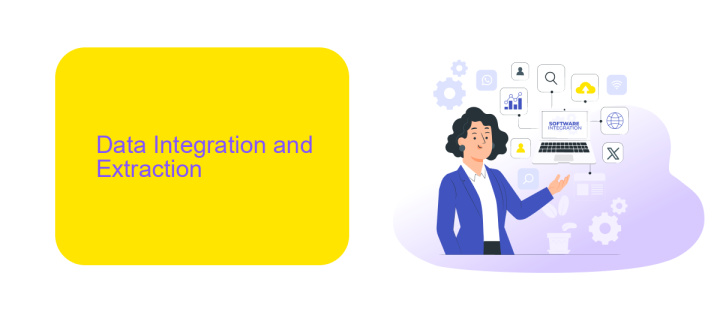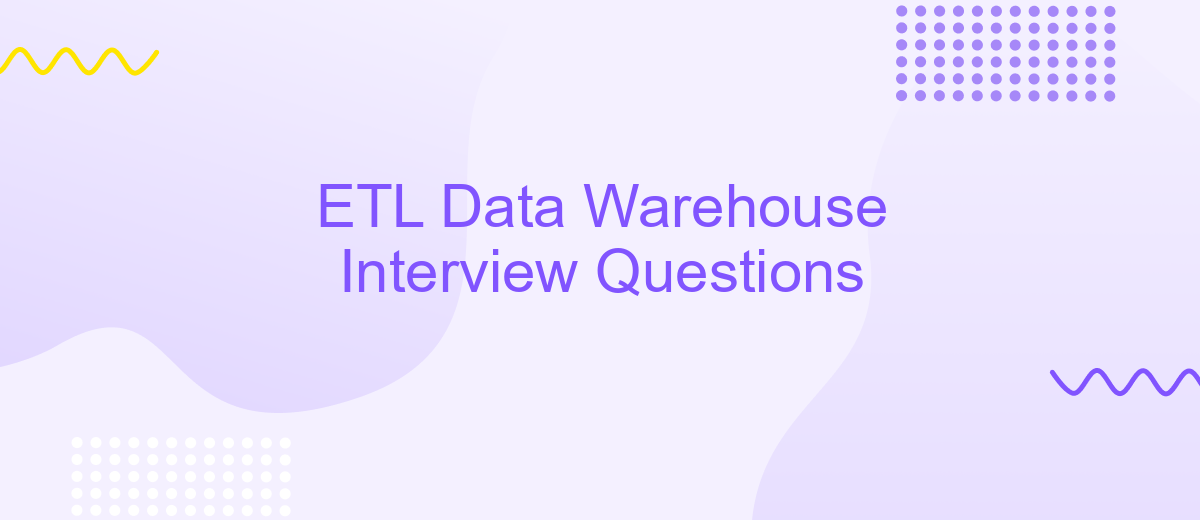ETL Data Warehouse Interview Questions
Preparing for an ETL Data Warehouse interview can be a daunting task, especially with the vast array of topics and concepts involved. This article aims to streamline your preparation by providing a curated list of essential interview questions. Whether you're a beginner or an experienced professional, these questions will help you understand key concepts and showcase your expertise during the interview.
ETL and Data Warehousing Concepts
ETL (Extract, Transform, Load) and Data Warehousing are fundamental concepts in data management and analytics. ETL involves extracting data from various sources, transforming it into a suitable format, and loading it into a data warehouse. This process ensures that data is clean, consistent, and ready for analysis.
- Extract: Gather data from multiple sources such as databases, APIs, and flat files.
- Transform: Cleanse, filter, and reformat data to meet business requirements.
- Load: Insert the transformed data into a data warehouse for analysis.
Data Warehousing is the process of centralizing and consolidating large volumes of data from different sources. This enables organizations to perform complex queries and generate reports efficiently. Tools like ApiX-Drive can simplify the integration process by automating data extraction from various services, thus streamlining the ETL workflow. Understanding these concepts is crucial for anyone involved in data analytics and business intelligence.
Data Integration and Extraction

Data integration and extraction are crucial components of the ETL (Extract, Transform, Load) process in data warehousing. Effective data integration ensures that data from various sources is combined into a unified view, enabling comprehensive analysis and reporting. Extraction involves retrieving data from different sources, which can include databases, APIs, and flat files. The quality of data extraction impacts the overall accuracy and reliability of the data warehouse.
Tools like ApiX-Drive simplify the integration process by providing a platform to connect various applications and automate data workflows. ApiX-Drive supports numerous data sources and destinations, making it easier to set up and manage data pipelines without extensive coding. By leveraging such tools, organizations can streamline their data extraction and integration processes, ensuring that their data warehouse is populated with accurate, timely, and relevant data. This ultimately enhances decision-making capabilities and operational efficiency.
Data Transformation and Data Quality

Data transformation is a critical step in the ETL process where raw data is converted into a format suitable for analysis. This involves cleaning, aggregating, and enriching the data to ensure it meets the requirements of the target data warehouse. Effective data transformation can significantly enhance the quality and usability of the data.
1. **Data Cleaning**: Removing duplicates, correcting errors, and filling in missing values.
2. **Data Aggregation**: Summarizing detailed data into more useful forms, such as totals or averages.
3. **Data Enrichment**: Adding relevant information to the data, such as geolocation data or demographic information.
4. **Data Normalization**: Structuring data to reduce redundancy and improve integrity.
5. **Data Validation**: Ensuring the data meets predefined rules and standards before loading it into the data warehouse.
Maintaining high data quality is essential for reliable analytics and decision-making. Tools like ApiX-Drive can streamline the integration process by automating data transfers between various platforms, ensuring that the transformed data is accurate and up-to-date. By leveraging such tools, organizations can focus more on data analysis rather than the complexities of data integration.
Data Modeling and Data Storage

Data modeling and data storage are critical components of any ETL data warehouse system. Effective data modeling ensures that data is organized in a way that supports efficient querying and analysis. This involves designing schemas, defining relationships, and normalizing data to minimize redundancy while maintaining data integrity.
Data storage, on the other hand, deals with the physical and logical aspects of storing data. It includes selecting appropriate storage solutions, optimizing storage performance, and ensuring data durability and availability. Modern data warehouses often use a combination of on-premises and cloud-based storage solutions to balance cost and performance.
- Schema Design: Star Schema, Snowflake Schema
- Normalization: 1NF, 2NF, 3NF
- Storage Solutions: SSDs, HDDs, Cloud Storage
- Data Partitioning and Indexing
For seamless integration of various data sources, tools like ApiX-Drive can be highly beneficial. ApiX-Drive simplifies the process of connecting disparate systems and automating data flows, ensuring that your data warehouse receives timely and accurate data for analysis. Leveraging such tools can significantly enhance the efficiency and reliability of your ETL processes.


ETL Process Management and Optimization
Effective ETL process management and optimization are crucial for ensuring data warehouse performance and reliability. The key to successful ETL management lies in meticulous planning, monitoring, and continuous improvement. Techniques such as parallel processing, incremental loading, and partitioning can significantly enhance performance. Additionally, implementing robust error handling and logging mechanisms helps in identifying and resolving issues promptly, thereby maintaining data integrity and consistency.
Optimization also involves leveraging tools and services that streamline the integration process. For instance, ApiX-Drive offers a versatile platform for automating data transfers between various applications and services without the need for extensive coding. By utilizing such tools, organizations can reduce manual intervention, minimize errors, and ensure seamless data flow. Regularly reviewing and updating ETL processes to adapt to evolving data needs and technological advancements is essential for sustaining efficiency and achieving long-term success.
FAQ
What is ETL in the context of a Data Warehouse?
Why is ETL important for Data Warehousing?
What are some common challenges in ETL processes?
How can automation improve ETL processes?
What skills are essential for an ETL developer?
Apix-Drive will help optimize business processes, save you from a lot of routine tasks and unnecessary costs for automation, attracting additional specialists. Try setting up a free test connection with ApiX-Drive and see for yourself. Now you have to think about where to invest the freed time and money!

